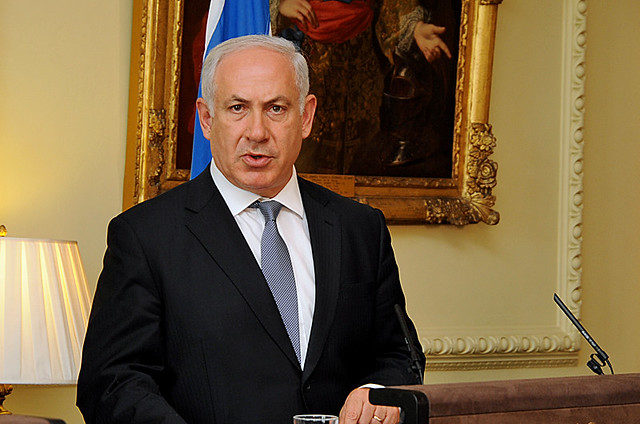
Prime Minister Benjamin Netanyahu has lambasted the European Union’s lacklustre response to Iran’s uranium enrichment violations beyond the permitted level.
In an scathing rebuke the Israeli leader compared EU’s actions to attempting concessions with Nazi Germany after foreign ministers said contraventions were not “significant”.
“The EU response to Iranian violations reminds me of European passivism in the 1930s,” Netanyahu said in a video statement. “Then as well, there were those who hid their heads in the sand and never saw the approaching danger.”
He added, “Apparently, there are those in Europe who won’t wake up until Iranian missiles slam into their continent. That of course will be too late. In any event, we will continue doing whatever is necessary to prevent Iran from acquiring nuclear weapons.”
Israel views Washington’s stance in sanctioning Tehran as the preferred action.
While Iranian leader Hassan Rouhani has affirmed Iran would negotiate if the US lifts sanctions and return to the table, that hope appears a non-starter.
Gordon Sondland, US Ambassador to the EU, told the BBC, “Our European friends should join the US in unequivocally condemning Iran’s actions with respect to their malign activities, not just in the Strait of Hormuz but throughout the world.”
EU nations however hope diplomatic pressure will resurrect the collapsing 2015 nuclear deal.
Member states met in Brussels to discuss a way forward after Iran’s actions this week.
EU foreign policy chief Federica Mogherini said breaches were “not serious” enough to trigger “snap back” sanctions against Iran.
“None of the parties to the agreement have signalled their intention to invoke this article, which means that none of them is, for the moment, for the time being, with data we had in particular from the IAEA, considering the non-compliance a ‘significant’ non-compliance.”
“We have also noticed that all the steps that have been taken by Iran are technically reversible.”
Statements from other European officials confirmed the agreement was not terminal.
British Foreign Secretary Jeremy Hunt said Iran was still a year away from developing a nuclear deal.
“We think there is still closing small window to keep the deal alive,” he noted.
“The Europeans have to stay united on this issue in particular Britain and Germany,” added French Foreign Minsiter Jean-Yves le Drian. “The EU along with France have to ensure it will to bring Iran back to the agreement. It was a bad reaction the US decision to withdraw from the deal.”
“The deviations are not significant enough to think Iran has definitively broken the agreement,” commented Spanish Foreign Minister Josep Borrell.
As the crisis deepens, only last week, Netanyahu called on Europe to announce sanctions in response to Iran increasing its uranium enrichment beyond the 3.67% permitted.
Germany, Britain, France and the European Union expressed “deep concern” and called for an urgent meeting of the JCPOA commission.
Netanyahu described Iran’s actions as a “very, very dangerous step” and called on world leaders to impose “snapback sanctions”.
By Howard Lawrence









